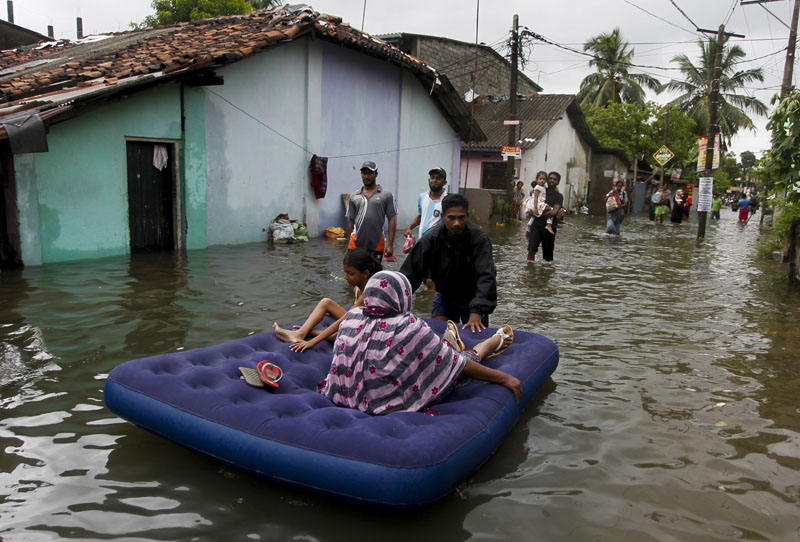More than 150 people feared buried in Sri Lanka landslides
COLOMBO: More than 150 people are feared dead after they were buried under two landslides triggered by more than three days of heavy rain in central Sri Lanka, disaster officials said on Wednesday as rescuers raced to find survivors and recover the dead.
Torrential rains have forced more than 196,000 people from their homes, the latest official data showed, with the recovery of another 19 bodies across the South Asian country bringing the official death toll so far to 35.
More than 350 people were plucked to safety during rescue operations in landslide-affected areas across the country early on Wednesday, officials said.
Rescue efforts have focused on the town of Aranayaka, 100 km (60 miles) northeast of the capital, Colombo, where three villages were buried late on Tuesday in the central district of Kegalle.
A Sri Lankan Red Cross official who attended a disaster meeting at the Aranayaka landslide site early on Wednesday said it was feared the death toll was much higher than the official figures listed so far.
"At that meeting, it was revealed that around 300-400 people are feared to have died in the Aranayaka landslide,” Neville Nanayakkara, director general of the Sri Lanka Red Cross Society, told Reuters.
Nanayakkara was speaking before other officials said that about 150 people had been rescued from the Aranayaka area, leaving fears for the safety of at least another 150 people.
The Red Cross has set up a welfare camp for survivors of the Aranayaka landslide.
Police said another landslide at Bulathkopitiya, also in Kegalle district, had buried at least 16 people.
Military spokesman Jayanath Jayaweera said troops had recovered 13 bodies from the Aranayaka site and three from Bulathkopitiya.
He said the 150 people who were rescued from Aranayaka earlier on Wednesday had been sent to six camps set up for displaced people in the area.
Troops using boats and helicopters also pulled to safety more than 200 people trapped in the northwestern coastal district of Puttalam, Jayaweera said.
Flooding and drought are cyclical in Sri Lanka, which is battered by a southern monsoon between May and September, while a northeastern monsoon runs from December to February.






